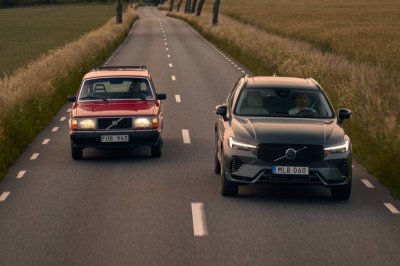
There's a new, easy way to check a used electric car’s history and performance which will help second-hand buyers have peace of mind during the purchasing process.
EV Check Plus has been launched by battery testing and analytics company ClearWatt. The tool, which costs £8, is claimed to make buying a used EV a reassuring experience rather than a worrisome one.
It provides customers with a proprietary and highly reliable estimate of the range of the second-hand EV, as well as history checks and legal obligations surrounding the vehicle.
It aims to show that used battery cars can be a sensible buy - and that batteries in particular are safe and reliable.
While used EVs are currently presenting great value due to high levels of depreciation in the first 12 months, in many cases making them cheaper than their comparative petrol counterparts, many drivers still have fears around battery life.
It's been found that 75 per cent of UK drivers have ‘serious concerns’ about purchasing a second-hand EV, with the biggest issue being the remaining life of the battery.
75%of UK drivers have ‘serious concerns’ about purchasing a second-hand EV, with the biggest issue being the remaining life of the battery.
The EV Check Plus gives the potential EV buyer a report – which costs from £7.99 per vehicle check – with insight into three areas: Range and Performance, Practicality and Ownership and Vehicle History and Legal.
On top of the EV Check Plus providing prospective buyers with accurate estimates of metrics, it also provides crucial information on the running costs of an electric car, including estimated bills for charging.
To generate this information about a second-hand battery car, ClearWatt uses a dataset based on thousands of real-world tests performed on EVs.
ClearWatt's EV Check Plus shares insight into three areas: Range and Performance, Practicality and Ownership and Vehicle History and Legal
There’s also a simple app-based tool that benchmarks a car’s performance and checks its battery health after purchase.
EV Check Plus and the app follows on from ClearWatt’s battery health testing, created with financial support from the Department of Transport, and allows customers and businesses to effectively test battery range and health using a smartphone.
Patrick Cresswell, co-founder and managing director, commented: 'It’s a great time to buy a second-hand EV, as tens of thousands of cars sold early in the pandemic to leasing companies are now hitting the market.
'But we know potential purchasers are often worried about the range and real life performance of second-hand EVs, and rigorous benchmarking is hard to find.
'That’s why we launched EV Check Plus, so that prospective car buyers can quickly compare, contrast and uncover insights across the whole market of used EVs.'
Despite worries EV batteries typically last 10 to 15 years, or over 150,000 miles. Many manufacturers offer warranties of seven or eight-years/100,000 miles

Should you be worried about buying a second-hand EV?
Generally, studies have shown electric cars have fewer breakdowns than petrol or diesel cars and are more reliable.
Despite hysteria to the contrary, an electric car should actually be easier to assess when buying second-hand than petrol or diesel cars and have fewer issues.
This is because they have fewer moving parts; there’s no clutch, spark plugs or engine oil for instance.
Issues to check for are tyre issues due to the huge amount of torque EVs have, software issues, or charging and battery issues like worn cables.
However, batteries typically last 10 to 15 years, or over 150,000 miles. Many manufacturers offer warranties of seven or eight-years/100,000 miles.
Check whether this is transferable after sale.
It’s possible to get a warranty on used EVs that cover the battery even if the originally warranty isn’t valid, so don’t worry if it doesn’t still come with the manufacturer’s cover – it might not be the end of the world.
There a 28% A 2021 electric Mazda MX-30 (left) with average mileage is said to be worth £12,180 today. A 2021 petrol Mazda CX-30 (right) is valued at £16,960 - a 28% difference
CarGurus, the second-hand car sales platform, conducted a study that found used combustion engine models are on average £2,560 more expensive than equivalent electric models of the same age and mileage from the same manufacturer.
This is a significant difference of 10 per cent - enough for CarGurus to conclude that the 'days of used EVs costing significantly more than fossil fuel models are over'.
CarGurus analysed the average second-hand value of EVs against a like-for-like fossil-fuelled model from the same brand offering similar performance, to determine which option provides the best value.
While electric choice would have cost significantly more when new in every circumstance, due to steep depreciation - especially in the first 12 months - the value difference was wiped out before these cars reached a year old.
For instance a 2021 electric Jaguar I-Pace was 22 per cent cheaper second hand than a petrol F-Pace from the same model year (£25,629 vs. £33,012), and a 2022 Skoda Enyaq EV was 19 per cent less than the 2022 Skoda Kodiaq petrol (£23,056 vs. £28,307).
A 2021 Mazda MX-30, was 28 per cent cheaper than the ICE alternative CX-30 from the same year (an average of £12,180 vs £16,960) - the greatest value saving found.
Here's a full list if you're in the market for an EV second-hand bargain.















Facebook Conversations